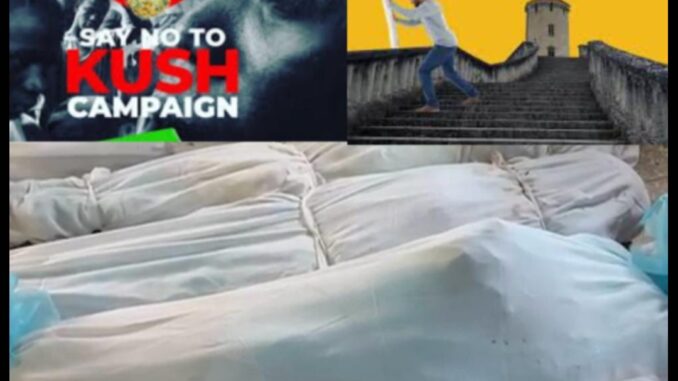
The Chief Minister of Sierra Leone, Dr. Moinina David Sengeh has been reminded about the most serious threat facing the country at the moment—The KUSH DRUG EPIDEMIC .
Yesterday, 32 unidentified victims of this deadly drug were buried in a mass grave in the Sierra Leonean capital of Freetown. READ BELOW :
——————-
Dear Hon Minister Moinina David Sengeh, thank you for throwing light on the energy issue after what has been a long and continued period of extreme frustration by us consumers with regards the demands of the sector (energy).
As you mentioned here in your article, your role as Chief Minister is to coordinate, and with the portfolio that you carry and the context of what coordination means in broad governance sphere, you are essentially the individual charged with the responsibility of steering this heavily burdened ship called Sierra Leone, whilst our duly elected President continues on his bigger mission; if any, of rebranding the image of the country in the global hemisphere, like an artist does an illusion painting.
I am responding to your message as an almost 30-ish youth, who feels extremely despondent about the daily encounter of the mass of Sierra Leonean youths, whose lives are daily wasted under the KUSH epidemic, which your coordinating activities is yet to catch strong wind of. As one who is considered visionary by many quick impressionist, It is my fathomed estimation that the passionate desire with which your continually spell-binds us with the RADICAL INCLUSION drive, could have been equally shaded to the glaring reality of the ruinous status of our young people in the country.
Chief Minister David Sengeh does not have his priorities right
Of all the hardship that we have resiliently endured under the leadership of President Bio, It is quite heart wrenching, to continually see young people languishing in such hellish and debasing conditions unbefitting the status of our humanity. I don’t know if you have perhaps not been daily privileged to visibly see for yourself, the precarious condition of the thousands of these young people, that I believe would have by now been a catalyst for you to spring to immediate action. That you have not done so, remains a serious mystery, unless maybe i am ignorant and not attentive to your delivery schedule. I mush however remind you that these young people, are products of dysfunctional homes, and communities, who do not feel socially connected or have a sense of communal responsibility, owing largely to the herculean task of working hard everyday to survive on a daily basis, whilst your colleagues in high places siphon public funds that can be better utilised to improve the daily lives of ordinary Sierra Leoneans.
The Chief Coordinator of the government delivery team Sir, the present drug pandemic is the biggest threat to the sustainability of your data driven human capital development drive, unless something is done with immediate alacrity. It also casts a forlorn shadow of situational irony on your passionate drive for radical inclusion, which on evidence, looks to have negligibly ostracised the vast majority of young people, as they are left to languish in penury and anguish of excessive drug addiction. Being the data driven genius that you are, I am quite certain that should your insightful data lens reflect cosmically on the conditions of kushian youths, you heart will shudder at the expansive metrics of the dejected nature of their wellbeing or should I say sick-being.?
I might be ignorant of the data driven insights regarding the gains made in the youth sector in compliment of the President’s reputation as youth champion. I know not how many young people have been empowered by the sheer commitment of the social capital development drive, but I am sure the unemployment rate speaks quite clearly to that. However, in so far as the empirical facts are concerned, the drive to empower youths is strongly pivoted at the center of round wooden tables in conference rooms, saddled with springed waters to quench the insatiable passion of all youth AMBASSAORS in their strong advocacy for empowerment in photographic elements, whilst the real evidence is seen in the growing number of young people, who are daily dragged to the grave in plain sight, by the damaging effects of drug abuse. In all of this, a YOUTH MINISTRY exists that has zero impact and footprint on youth empowerment.
I know not what is next on your delivery agenda, but I must hasten to remind you that the wait is still on for Noah’s Ark to give shelter from the tempestuous drug storm that is drowning the souls of our young people.
*#YOU-OUGHT-TO-DELIVER-FOR-THE-YOUTHS#*
OSWALD HANCILES
––‐——————————–
A SAD REPORT ON VICTIMS
THIS IS WHAT CHIEF MINISTER DAVID SENGEH WROTE :
The Chief’s Diary: EDSA, the Society and the Economy
I want to start of by saying something non political. Energy transition, and energy access should not be about APC or SLPP. This is a long term fundamental reform that we as government must undertake in partnership with private sector and citizens because without power, there’s no progress (pun intended). I want to say sorry for the energy issues.
I also want to say we believe in giving people information. It’s not always easy to but we are trying. Final caveat is that I am sharing now because we are one government. Ministry of Energy, Presidential Initiative on Energy, EDSA, EGTC, Ministry of Finance and all of us are working together to give you the information we need to engage. My role is one of coordination too. So no, I am not doing anyone’s work- I’m doing mine.
So today, we will start with two things:
1. The number of end users of electricity have grown much quicker and bigger than the ability to provide energy. In simple terms, more and more and more people need more and more and more energy than we are able to provide energy. And yes, government has expanded access. We have new solar farms, we have added a power source from Ivory Coast and improved our networks but that’s not enough. When we compare these numbers to previous years, you’ll see that energy access has expanded thanks to Ministry of Energy’s efforts. And we are still signing new power purchase agreements particularly for the dries when there’s reduced bumbuna.
2. Government spends a lot more on subsidizing energy than the economy can expand. There are further complications here that there are energy loses from the network (changing the network is much more expensive); humans also steal lights and vandalize infrastructure (which are expensive to replace); and private sector are on different tariffs (wrong tariffs often). Yes, of course this is a human factor issue- there’s corruption (and we’ve seen ACC make several efforts here. But it’s harder to catch thieves than people think).
Now, if we see between 2022 and 2023, there was a drop off in subsidies to the energy sector. I mean we paid more teachers, we also funded an election and we provided more Healthcare solutions. This meant less energy supplied to the increasing population. In other words, even if government could afford, we would have still experienced some more blackouts since there’s a cap on energy generation. And of course people wouldn’t have noticed the exponential increases from 2019 to 2022. We only notice when there’s no blackouts.
What’s the solution?
1. Remove all subsidies (we did some of this last year)?
2. Invest in network and generation (that’s what the MCC grant is for by the way. This is what I feel sad when I hear bad politicians undermine the MCC grant).
3. More accountability (stop stealing lights and stop vandalism)
Of course, Government must expand the economy since we can’t really remove every subsidy.
Now here’s the thing. In Freetown and some areas, we pay about 3 times less for power than the poor people in the rural areas. Is this fair? Up for debate. But one thing is clear, when we look at the data, Ministry of Energy and its agencies have been putting in the work. They of course need to do more. We all do. And I have every confidence that together, #WeWillDeliver

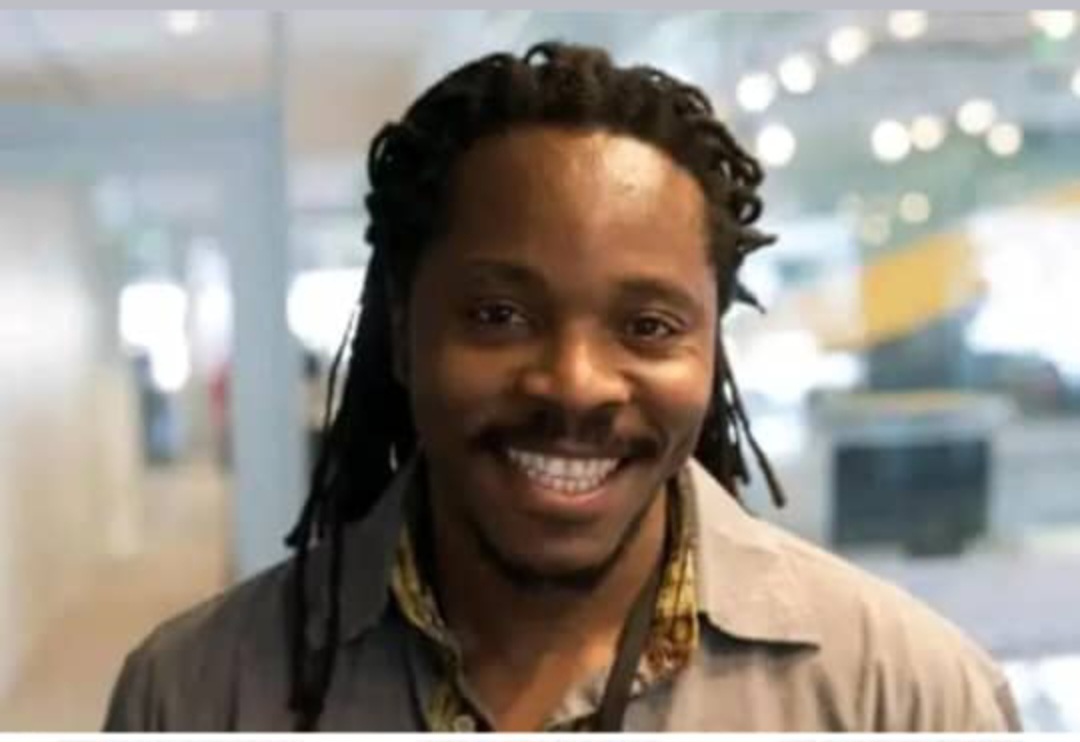
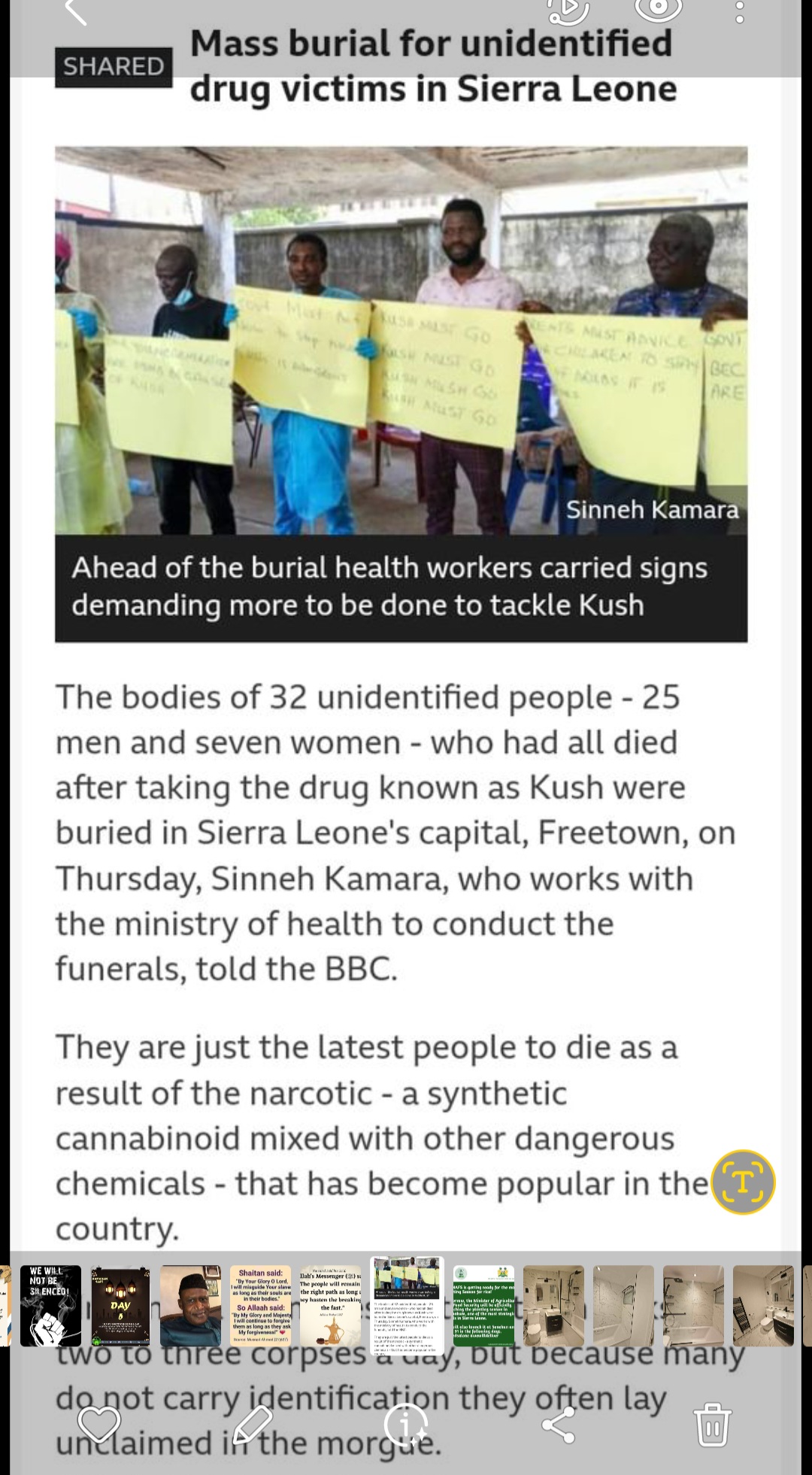
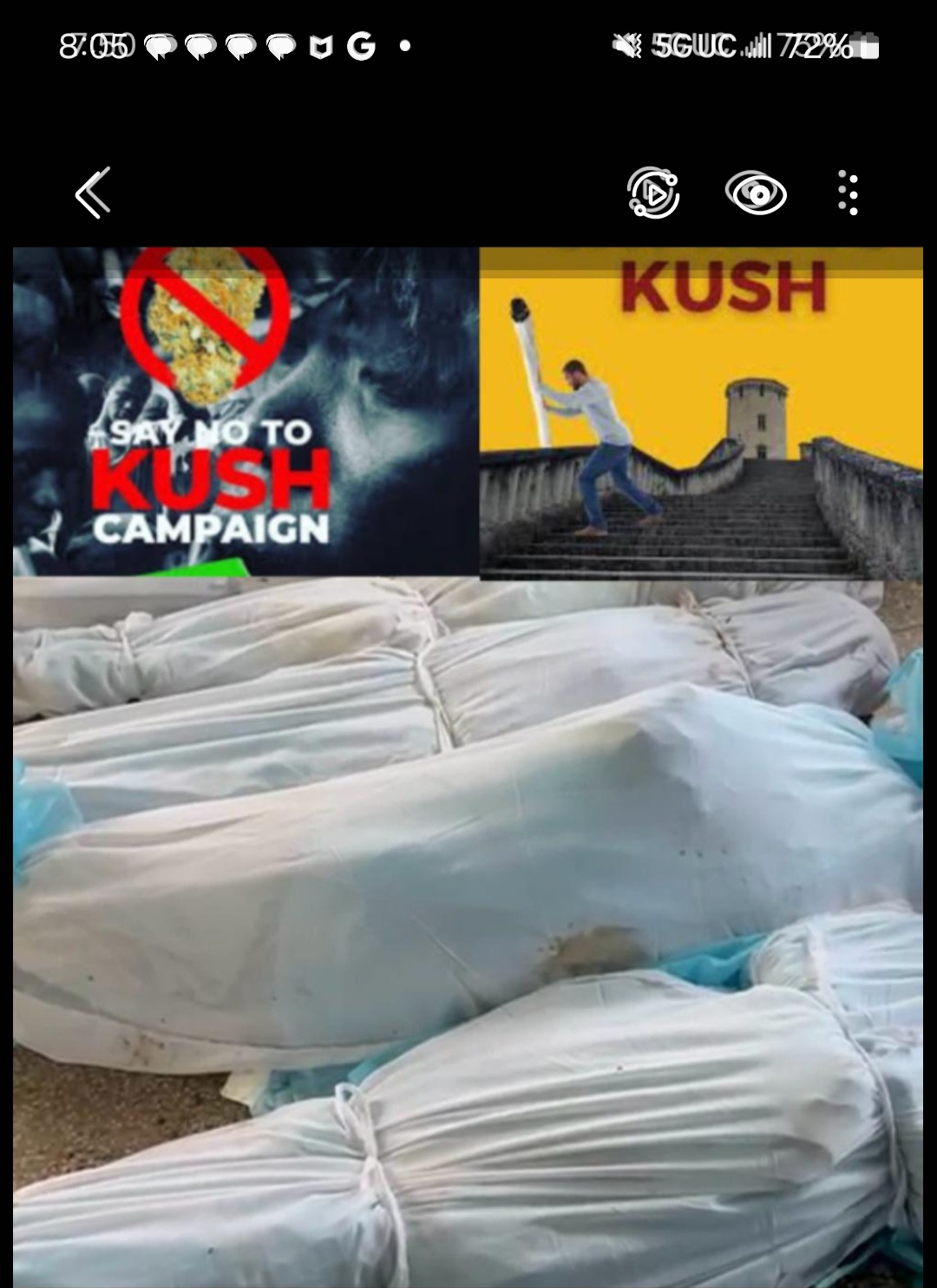
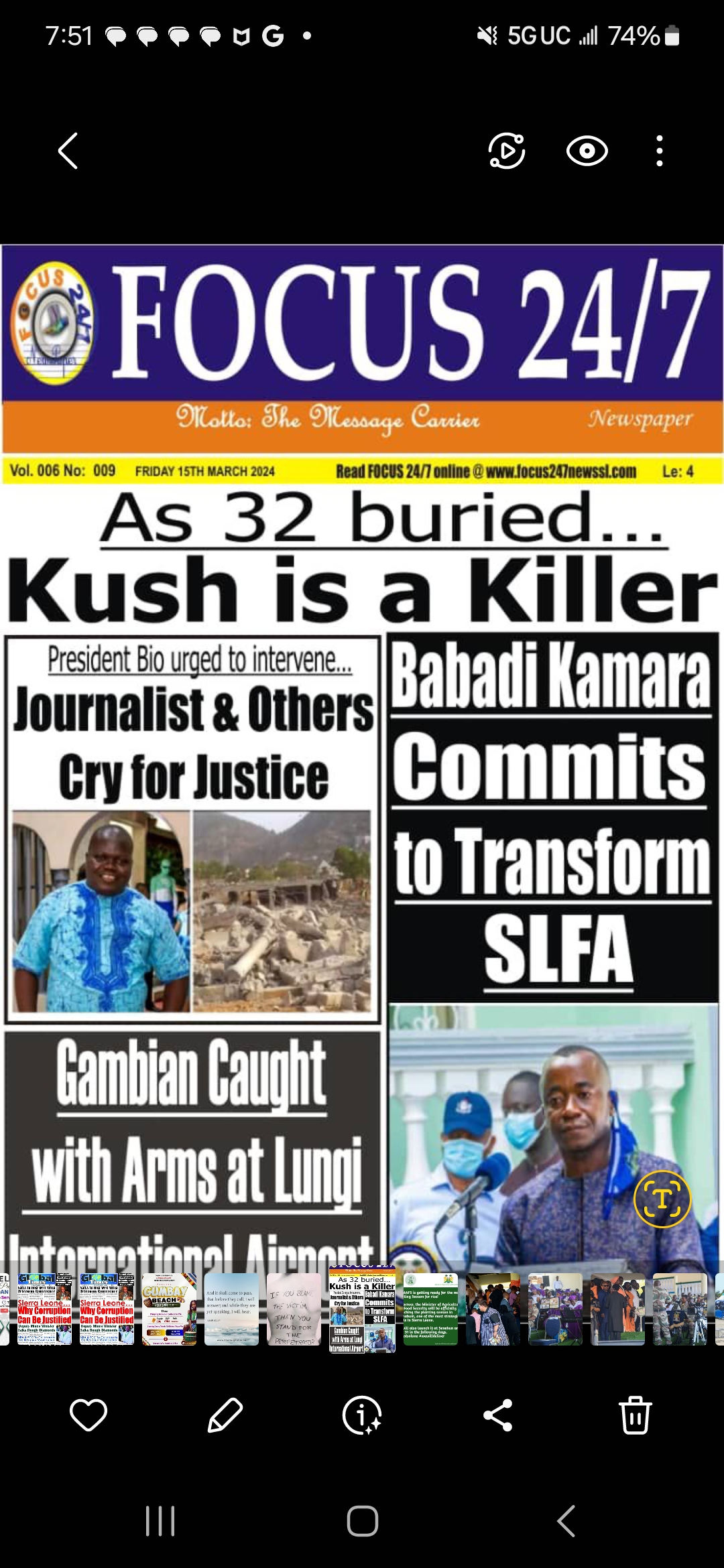
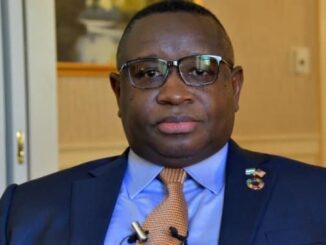
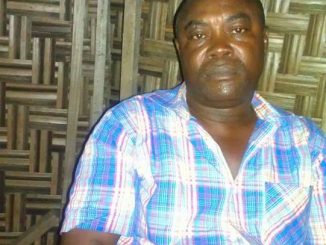
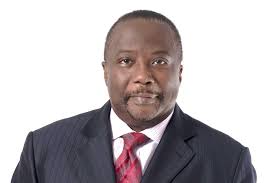
Leave a Reply